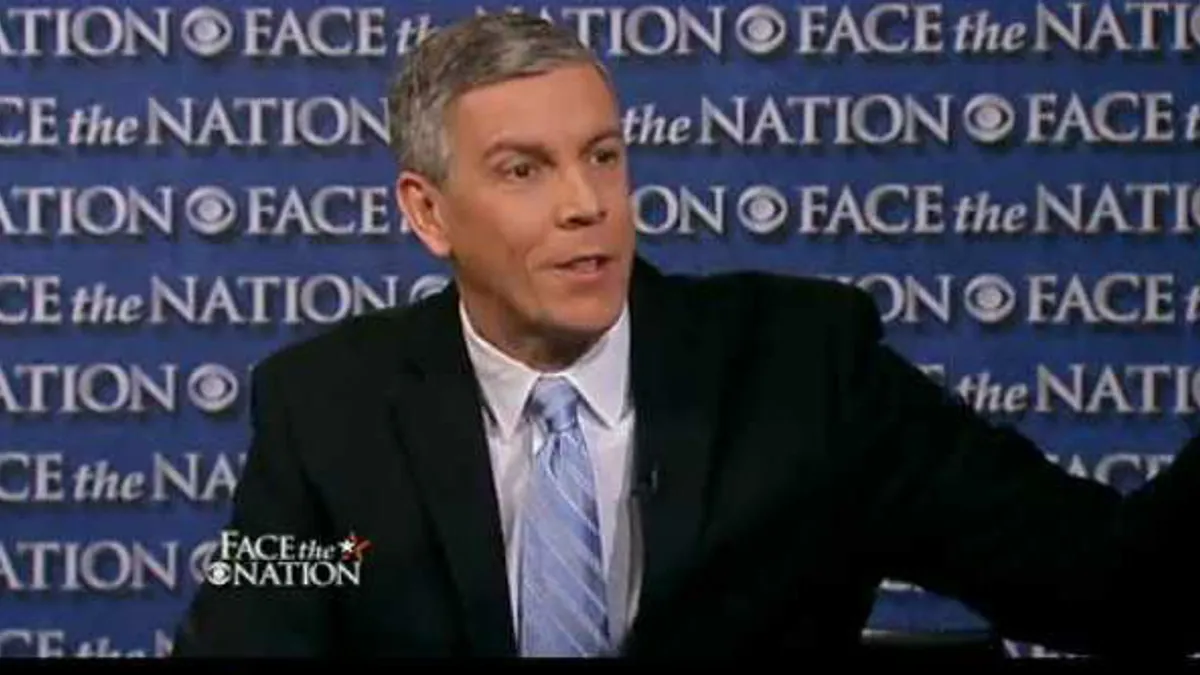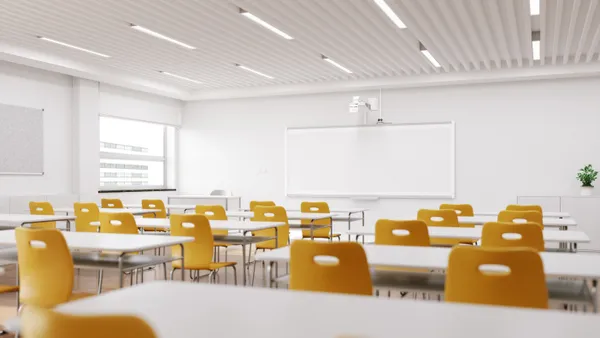Unless Congress acts before Friday, sweeping federal budget cuts known as "the sequester" threaten to leave numerous departments and programs with fewer resources. The White House has release a rundown of impacts that it expects to see as a result of the widespread belt-tightening, and pundits have fired back.
From President Obama's education secretary to professors and university presidents, here are five takes on what will happen and how noticeable the effects will be on universities and K-12 schools:
1. 40,000 TEACHERS COULD LOSE THEIR JOBS
"We don't have any ability with dumb cuts like this to figure out what the right thing to do is," Education Secretary Arne Duncan told CBS' "Face the Nation." "It just means a lot more children will not get the kinds of services they need, and as many as 40,000 teachers could lose their jobs."
2. THE REAL IMPACT MAY NOT BE FELT UNTIL NEXT SCHOOL YEAR
"There’s just one thing the White House doesn’t mention," writes David Nather at Politico, addressing White House estimates that aid to 1.2 million disadvantaged students at 2,700 schools and funding for 7,200 teachers and staff who teach children with disabilities would get axed. "Those cuts wouldn’t actually kick in until the next school year."
3. FEDERAL RESEARCH FUNDING CUTS WILL HAVE ECONOMIC IMPACTS
“The sequester will damage Illinois' knowledge-based economy, which depends on a steady stream of basic research funding from federal agencies, like the National Institutes of Health (NIH) and the National Science Foundation (NSF),” Northwestern University President Morton Schapiro wrote in a letter to members of the Illinois Congressional delegation. “Last year, Illinois research universities received more than $1 billion in funding from the NIH and NSF.”
4. UNDERGRADUATE RESEARCH ASSISTANTS WILL GET CUT
"If you're having your budget cut and your are faced with having to meet the goals of the project, the first thing you can look to trim will be that funding for undergraduates," Mary Lidstrom, vice provost for research at the University of Washington, told the Northwest News Network.
5. FEWER FEDERAL DOLLARS MAY MEAN MORE AUTONOMY
"On one hand, it's nice to have," Dr. Robert Wright, an economics professor at Augustana College, told KSFY in South Dakota. "On the other, it forces us to do things we might not want to do. If the federal government is going to decrease the amount of money, that should give us more autonomy to decide our own policies for ourselves."
Do you have an opinion on what sequestration means or doesn't mean for education? Email Education Dive and let us know.
Would you like to see more education news like this in your inbox on a daily basis? Subscribe to our Education Dive email newsletter! You may also want to read Education Dive's list of 9 alternative credentialing approaches.












